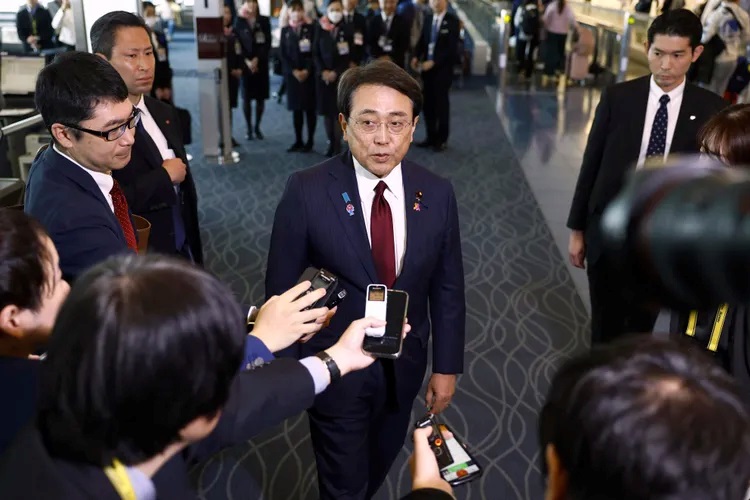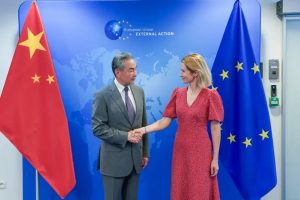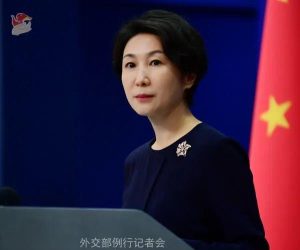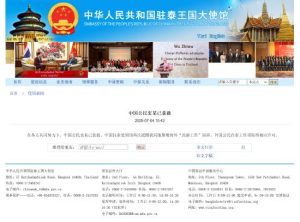Trump is unhappy with Japan for not buying US rice. The Japanese government responded: We are not considering sacrificing agriculture

Japan refused to import more U.S. rice, and U.S. President Trump expressed dissatisfaction on social media; White House officials hinted that the United States would give priority to negotiations with trading partners other than Japan, seemingly forcing Japan to make more concessions. In response, Japan’s Minister of Economic Revitalization Ryomasa Akazawa and Chief Cabinet Secretary Yoshimasa Hayashi both said that they would continue to promote negotiations, but would not consider sacrificing Japanese agriculture.
Akazawa, who is in charge of tariff negotiations, visited Washington again last week and held ministerial talks with U.S. Commerce Secretary Howard Lutnick, but the two sides failed to reach a consensus. Trump posted on social media on June 30, saying, “They (Japan) don’t accept our rice. They are obviously in serious rice shortage,” expressing dissatisfaction with Japan’s attitude on the issue of rice imports.
The Japan Broadcasting Corporation (NHK) reported that when NHK sought clarification from the White House on this post, White House officials said, “The government will focus on other trading partners before July 9,” implying that if the status quo remains unchanged, the United States will give priority to negotiations with trading partners other than Japan.
Trump has also repeatedly expressed dissatisfaction with another focus of negotiations, automobiles. In an interview with Fox News, he said that the number of automobile exports from the United States to Japan is too small, and said that “this is unfair”, and that he is ready to notify Japan in writing that a 25% tariff will be imposed on Japanese automobiles.
With the 90-day suspension period for reciprocal tariffs approaching on July 9, Trump seems to be trying to put pressure on Japan, hoping that Japan will take more measures to reduce the trade deficit.
The Japanese government can import 770,000 metric tons of foreign rice tariff-free each year, which is called the “Minimum Access (MA)”. Among them, the rice quota imported from the United States in 2024 exceeds 340,000 metric tons, accounting for about 45%.
Akazawa said at a press conference after the cabinet meeting today, “I have learned about President Trump’s remarks, but I don’t want to comment on the US remarks.”
In response to Trump’s dissatisfaction with Japan not importing more American rice, he emphasized that “agriculture is the foundation of the country, and creating an environment for producers to continue to produce crops with peace of mind is an important responsibility of the government and the ruling party. In negotiations with the United States, our position has always been not to negotiate at the expense of agriculture.”
He said that Japan and the United States are continuing discussions and trying to find the possibility of reaching an agreement, but there are still disagreements between the two sides and no consensus has been reached.
Japanese Minister of Agriculture, Forestry and Fisheries Shinjiro Koizumi said, “We will not comment on the remarks made by relevant US government officials. The Ministry of Agriculture, Forestry and Fisheries will cooperate with relevant ministries and agencies to promote negotiations based on the greatest interests of Japan.”
Chief Cabinet Secretary Yoshimasa Hayashi said, “We have learned about the relevant remarks made by Trump and the US authorities, but we will not comment. The specific content of the negotiations with the United States is not convenient to disclose, but we will continue to work hard to achieve an agreement that is beneficial to both sides and actively promote sincere and honest negotiations.”
He also emphasized that “in future agreements, we will not consider sacrificing agriculture and will strive to achieve the greatest interests for our country.”
At the same time, Japanese Prime Minister Shigeru Ishiba announced today at the “Cabinet Meeting on Achieving a Stable Supply of Rice” that he will promote a production increase plan starting from this year’s rice harvest.
Ishiba said that so far, the government has rapidly expanded the sales outlets of government reserve rice by canceling bidding, changing to arbitrary contracts, and selling directly to retailers, so that the average price of rice has fallen to 3,801 yen (per 5 kilograms) and stabilized at a level of more than 3,000 yen, which has indeed achieved results.
He pointed out that the relevant investigation report on the reasons for the price increase and the response measures has been received. On this basis, the production increase work will be promoted from the rice produced in Reiwa 7 (2025). “Not only should consumers be able to buy rice stably, but also the income of willing producers should be ensured, and the new rice policy should be transformed to allow producers to increase production with peace of mind.”







